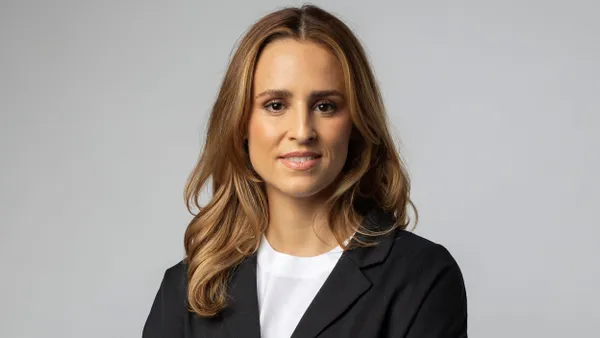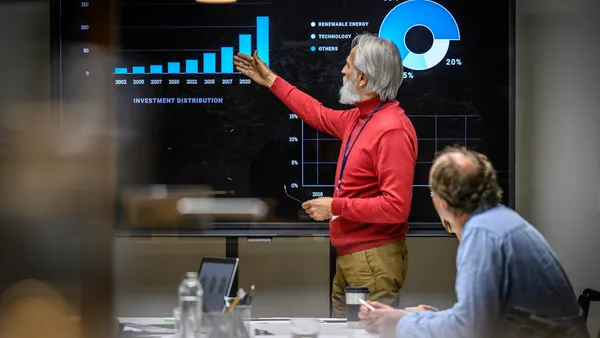For more than 12 years, Peter Fleischut worked as an anesthesiologist, supporting patients who underwent life-changing liver transplants.
Now, he's a tech leader.
Fleischut's focus as the Group SVP and chief information and transformation officer at NewYork-Presbyterian is to weave technology into patient care.
"One of the biggest challenges that the healthcare industry faces is really adoption of technology," said Fleischut, who took on his current role in October following several leadership positions across technology and management. "As a physician, and one that practiced, I think I provide a lot of understanding of what providers, nurses, physician's assistants, technologists go through and helping facilitate that process."
The highly regulated healthcare space can benefit from tech execs with hands-on experience, because IT decisions can greatly impact operations. But the trend holds true across different industry verticals.
Leaders with prior, direct experience in their industries can improve a company's ability to navigate disruption, thanks to greater visibility and understanding of day-to-day operations.
NewYork-Presbyterian spent years working through the consolidation of its electronic healthcare records system, a complex undertaking that required insight into the ins and outs of medical care. Working alongside Weill Cornell Medicine and Columbia University Irving Medical Center, the system moved from using nine separate EHR systems to one.
The project’s bigger challenge, which was completed at the start of 2022, was less about technology and more about process, Fleischut said.
The system consolidated over 10,000 order sets — groups of tests and other procedures that can be ordered through the EHR — down to a pared-back set of about 1,000 order sets.
"It was about how we worked across 10,000 doctors and approximately 51 different specialties to come to a unified set of order sets, so that we can all have the same practice patterns across the system," Fleischut said.
The insider advantage
Companies today are asking their technology executives to make sense of rapidly shifting trends, from emerging technologies to increased cyber risks and regulatory scrutiny.
With deep industry understanding, executives can help their organizations not only survive but thrive amid high levels of chaos and churn, according to Mike Tweedie, research practice lead at Info-Tech Research Group.
"If these leaders do not know their industry, they risk not only falling behind the competition but making expensive and damaging decisions," said Tweedie. "Their business peers are relying on technology to help them get to market faster, accelerate new product development and ensure positive user experiences."
The EHR consolidation project at NewYork-Presbyterian is an example of how technology can shape daily operations — and why it's helpful for executives to experience first-hand what it's like to interact with systems.
"As a practicing provider that also had background and experience in management in various clinical settings, I think it provided me with a lot of insight," Fleischut said.
Failed systems adoption can prove costly for organizations, but communication is critical to reach harmony between tools, people and processes.
"It's that type of communication and governance that I think that leads to successful technology adoption," Fleischut said.
Reducing friction throughout the healthcare process has a direct impact on a patient's quality of care. Technology, in this sense, can be life-saving.
Fleischut said the healthcare system is working on a multimodal data project to spot patients with a high probability of structural heart disease earlier in the healthcare process, leading to faster diagnoses and potentially life-saving care.
"That is a fundamental transformation of the care model of healthcare," he said. "I think it's truly exciting and it will ultimately change the way that we provide care and will change the outcomes of patients in these diseases."
Correction: This article has been updated to reflect Peter Fleischut is Group SVP and chief information and transformation officer at NewYork-Presbyterian.













